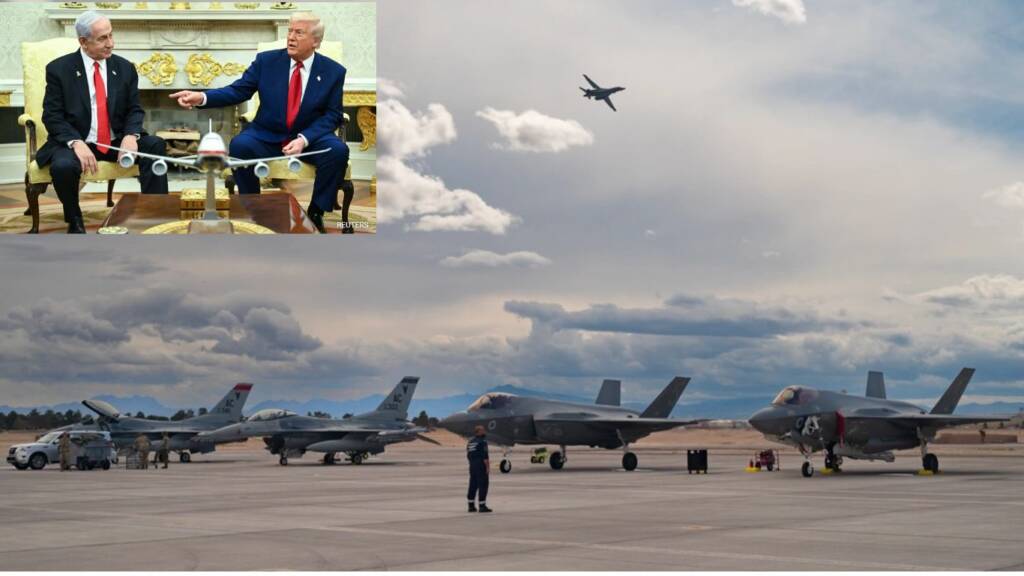In a surprise move, US President Donald Trump has stopped Israel from launching a planned military strike on Iran’s nuclear sites. The decision was reported by The New York Times, which spoke to American officials and other sources.
Israel had planned to attack Iran’s nuclear sites in May. The goal was to stop Iran from building a nuclear bomb. The attack could have delayed Iran’s program by at least one year. Currently, Iran has became weak after its proxies faced heavy losses. However, the plan still needed help from the United States to succeed.
The US support was necessary for two reasons. First, to make sure the attack was successful. Second, to defend Israel from Iranian retaliatory strikes.
Talk over attack
Trump, however, chose a different path. After months of debate, he picked diplomacy over war. He decided to start talks with Iran instead of helping Israel strike. However, Trump knows all the pros and cons of the attack and hence chose to negotiate.
The US and Iran held their first round of talks last Saturday in Oman. Both sides called the talks “positive” and “constructive.” A second meeting is expected this Saturday, and sources say it will likely happen in Rome.
The New York Times also reported that Trump spoke directly to Israeli Prime Minister Benjamin Netanyahu. Their meeting took place at the White House earlier this month. Trump informed Netanyahu that the US would not back a military attack on Iran.
Sources said Netanyahu was pushing hard for an attack as early as next month. But Trump stood firm. His team was divided over the plan. Some wanted to hit Iran. Others warned against starting a bigger war in West Asia, knowing the current geoeconomic situation of the world where the US is fighting a direct trade war with China.
Trump wants to pressure Iran
In the end, Trump was against the offensive. The US would instead focus on making a new deal with Iran to stop it from developing nuclear weapons. The background is tense. Israel, Iran, and the Iran-backed groups have been clashing more in recent weeks. Iran has also rejected US demands to stop enriching uranium.
Despite the tensions, Trump believes a deal is still possible. Last week, he told reporters that he would decide “very quickly” on the Iran issue. This came after the first round of talks in Oman, which gave hope for future progress.
But the talks also faced challenges. Steve Witkoff, Trump’s special envoy to the Middle East, asked Iran to stop and eliminate its nuclear enrichment program. Iran’s Foreign Minister Abbas Araghchi strongly rejected this. He said Iran’s uranium enrichment is not up for negotiation.
Many experts believe that without US support, Israel could not take the risk of attacking Iran alone. The absence of American help likely forced Israel to hold back its plan.
The report also highlights the sharp turn in Trump’s approach to Iran. In his first term as president, he took a tough line. He cancelled the 2015 Iran nuclear deal, signed under President Barack Obama. He also ordered the killing of top Iranian General Qassem Soleimani.
Now, Trump is choosing talks over attack as part of the larger plan where he wants to intimidate Iran to reach a deal without war. As the second round of US-Iran talks nears, all eyes will be on the upcoming talks. A peaceful deal or direct conflict — both results still remain on the table.
